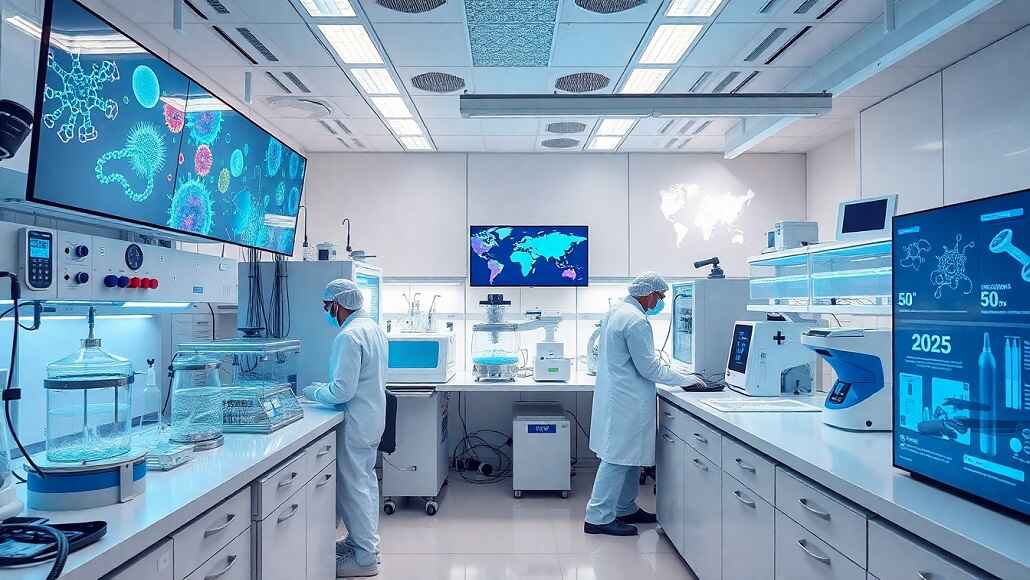It is a known fact that defining the next generation of anything is a challenge. Firstly, whatever the present generation is of the topic in question has to be identified, and then the limitations as well as challenges of that generation can go on to serve in order to inform the next one.
Fortunately, when it comes to concepts in biotherapeutics, the next generation in innovation is taking place at lightning speed. Don’t take it as an overstatement, but by the time this article gets published, there will be something new that could be developed that had not previously been on the radar.
As 2024 approached its end, there were other new or improved concepts in biotherapeutics in the first quarter of 2025 that were presented. There happen to be a couple of pronounced areas of focus when it came to developers and biomanufacturers, which came into the picture—
- Maintenance when it comes to an aseptic environment all across the manufacturing process and the search in terms of solutions when it comes to establishing alternative drug delivery methods that don’t just require a parental route of administration.
- The first stint of action came to the fore on January 9, 2025, when Bora Biologics went on to say that it would be supporting DotBio, which specializes in next-generation antibody therapies. Especially a novel, tri-specific antibody called DB007.
- That very same day, Coave Therapeutics stated that it had gone ahead and secured €32 million in Series A financing, enabling it to advance its proprietary advanced vectors-ligand conjugates platform, something that both the companies and financing co-leader Novo Holdings remarked would help Coave to advance as a leader when it comes to developing targeted, efficacious, and safe gene therapies.
- On January 13, 2025, Telix Pharmaceuticals went on to announce that it had entered into an asset purchase with ImaginAB, which is an antibody engineering company, thereby giving Telix a pipeline in terms of next-generation therapeutic candidates, which is a proprietary and novel biological technology platform, as well as a protein engineering and discovery research facility based out of California. There were also early-stage drug candidates that were included in it that act against high-value targets as well as other novel targets, which are still in the discovery stage.
- In March 2025, Quantoom Biosciences, which is based out of Belgium, went on to announce that it would be partnering with TechInvention Life Care Private Limited, as far as accessibility, affordability, and scalability of RNA-based vaccines is concerned. The pact also goes beyond and extends to animals as well as environmental health, along with environmentally sustainable tech integrating modular, low-carbon-footprint messenger RNA systems, which happen to support decarbonization and even the endeavors to offer access when it comes to next-generation RNA technologies.
- Later in March again, Cytiva went on to announce that it would be expanding its Xcellerex X platform portfolio by adding 500 – L and 200 – L bioreactors, therefore allowing the scientists as well as researchers to easily scale up the manufacturing when it comes to next-generation advanced therapeutics, and hence in a way ultimately lowering the costs, speeding the time to bring the new therapeutics to the next clinical milestone, and finally reducing the risks.
- Much of the business when it comes to the bio or pharmaceutical industry early in 2025 has been conducted by way of the lens of the threat when it comes to high tariffs being imposed by the Trump administration. Eli Lilly and Company announced on February 26, 2025, that it will be building 4 new manufacturing facilities across the US in order to deliver on its big bets as far as next-generation modalities such as small molecules, nucleic acid therapies, and biologics are concerned. This was confirmed by the Lily manufacturing operations executive vice president, Edgardo Hernandez.




















